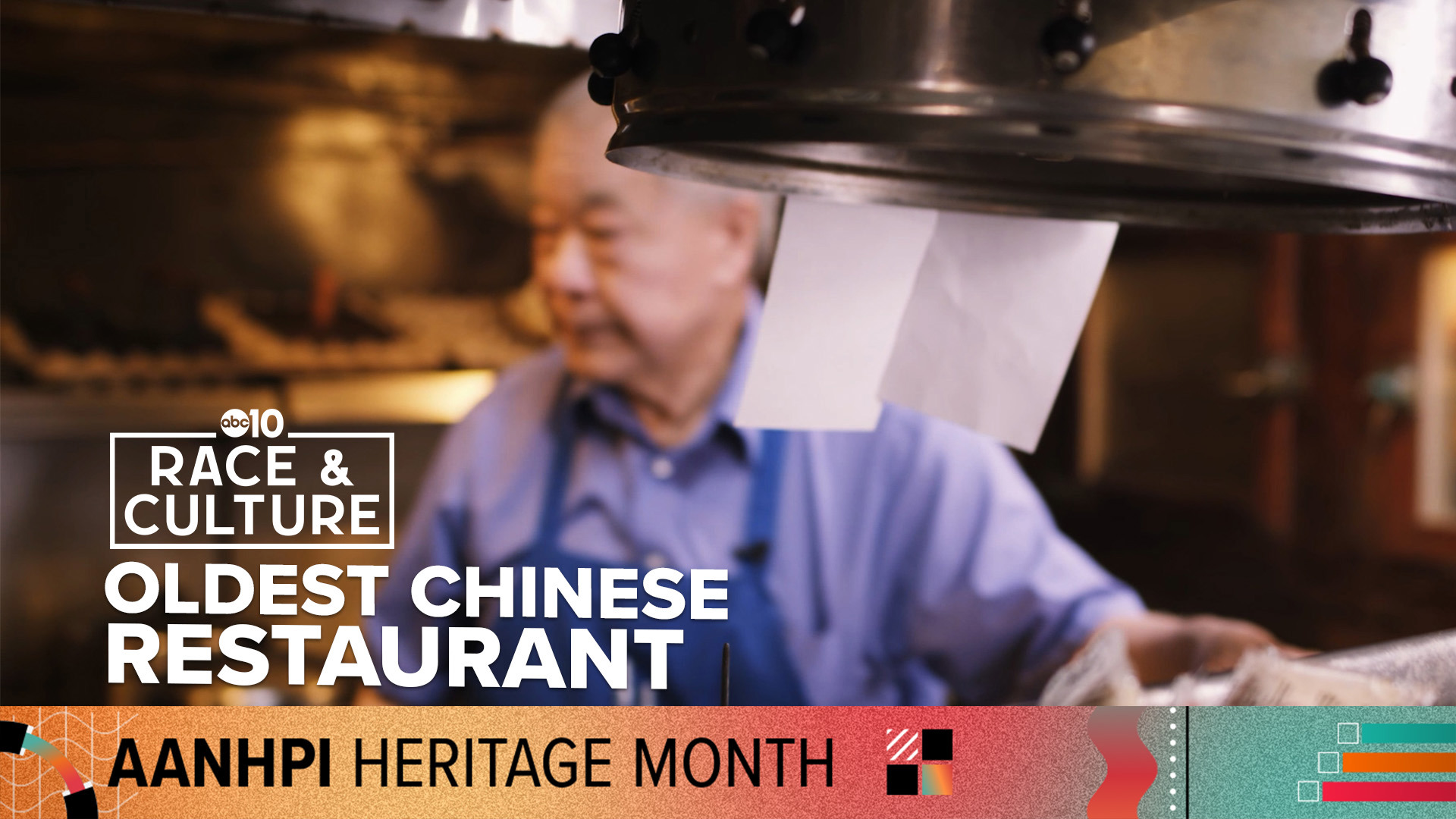WOODLAND, Calif. — If you follow your nose down Main Street Woodland, the smell of chow mein and fried rice might take you inside the Chicago Café Chinese American Restaurant.
The little mom-and-pop restaurant is within walking distance of the Yolo County Courthouse and you’ll often find long time regular and UC Davis law professor Gabriel "Jack" Chin sliding his fork into the café’s signature dish during the lunch hour.
“This is the Chicago combo plate for one,” said Chin.
Chin first tasted the Chicago combo plate back in 2011 inside one of the restaurant’s private booths — a seating arrangement rarely found anymore.
“There were ordinances against these booths. Not many survived,” said Chin.
Chin has looked over the menu countless times, but it wasn’t until recently he noticed something...
“It’s not just a Chinese American Restaurant. I believe it is the oldest Chinese restaurant in the United States,” said Chin.
He first realization dates back in 2022. At the time, the Pekin Noodle Parlor in Butte, Montana, received a lot of headlines when someone thought it was the nation’s oldest Chinese restaurant, founded in 1911. When Jack saw the headlines about Pekin Noodle, it made him think about the Chicago Café.
“The Chicago Café advertises everywhere they were established in 1903,” said Chin.
Paul Fong and his wife Nancy are third generation owners of the Chicago Café.
“My grandfather started it and then my dad came here,” said Paul.
If you look around the restaurant, the family history is displayed like a museum. Out back is a historic plaque marking the location former of the old Fong family home, which was once attached to the restaurant.
“They clearly have a sense of history, so they kept some of the old documents and old menus,” said Chin.
By researching the restaurant’s old documents and some newspaper archives, Chin and a team of UC Davis students found evidence of the restaurant’s existence in 1903. However, when they looked at records from the city of Woodland, there was almost no mention of the restaurant.
“In 1903, up to the 1920s, the business directories in Woodland and Yolo County did not include Chinese residences or Chinese businesses,” said Chin.
GET MORE RACE & CULTURE FROM ABC10:
►Explore the Race & Culture home page
►Watch Race & Culture videos on YouTube
►Subscribe to the Race and Culture newsletter
Because of the Chinese Exclusion Act of 1882, discrimination against Asian immigrants across America was widely accepted until the Exclusion Act was repealed in 1943.
“It was a series of laws designed to restrict Asian immigration and to protect white labor,” said Chin.
Restaurants were some of the only businesses under the Exclusion Act Chinese and Asian Immigrants were allowed to legally operate. It’s a topic Chin discusses in a book he wrote about the history of law and Chinese restaurants.
“So, this was a place where Asians could work and have opportunity,” said Chin.
The Chicago Café might have experienced some discrimination in the past, but you wouldn’t know it today. Many of the long-time customers were practically raised eating the food Paul and Nancy Fong cooked.
“I would walk up here from school and mom would get me in that room over there if I had any homework,” said long time patron Lydia Azevedo.
The Chicago Café is not just a Chinese restaurant. It’s a gathering place, a bit of a museum and the unofficial community trophy case where customers display their taxidermy deer and fish. There's even a peacock someone hit with their car.
“They are like family,” said Paul of his regulars.
The Chicago Café allowed Fong’s grandfather and father to immigrate to America from China and it allowed Fong and his wife to provide a better life for their children.
“My daughter is a doctor at Kaiser and my son works at Apple. They make good money," said Paul.
The Fong family has served food and the community since 1903, but with no kids to take over, the Chicago Café dynasty looks like it is coming to an end.
“I already told the real estate guy I want to lease it out so I can retire,” said Fong.
When the oldest continually operating Chinese restaurant in America does close, there probably will be some tears from the customers but there will also be some laughs from the owners.
“The joke is, you work in a Chinese restaurant so your children won’t have to, and it worked,” said Chin.
WATCH MORE ON ABC10: Voices from the AAPI community



















